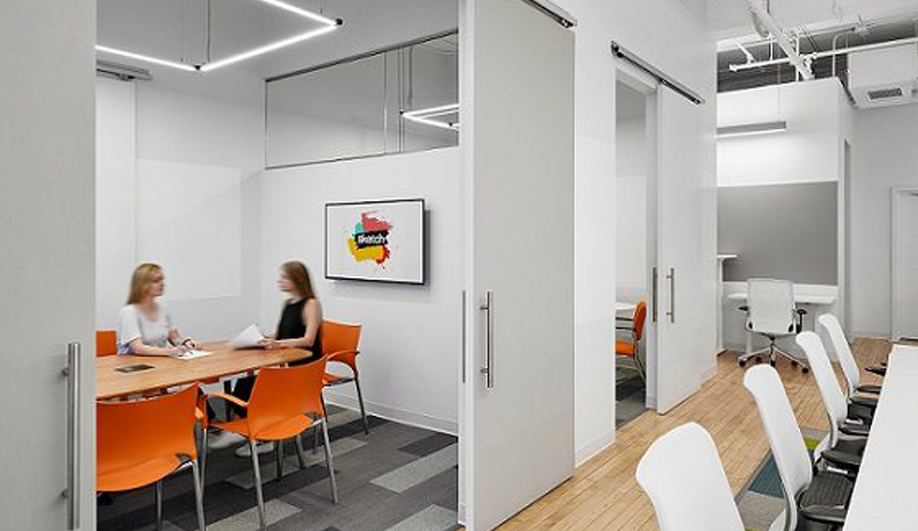We spoke with Dave Mclaughlin, WeWork East’s general manager, to learn more about what makes coworking such an attractive option.
Coworking spaces are still a relatively new concept, but as the working world continues to change, the idea is becoming increasingly popular — some estimate that the number of coworking spaces doubles every year.
WeWork, appraised as the sixth largest private startup in the world, is the most popular coworking company by far, with over 160 locations in 16 countries. We spoke with Dave Mclaughlin, WeWork East’s general manager, to learn more about what makes coworking such an attractive option.
Everything on demand
At their most fundamental, coworking spaces are simply office or studio environments where people are not all employed by the same organization. This broad definition covers a lot of territory, both in terms of what coworking spaces can look like, as well as who uses them — but the basic premise remains the same: inside an office with publicly shared facilities, members can rent one or more desks or private offices, by the day or by the month. Often, it’s possible to reserve the same desk every day, or claim space at a shared desk, which might be different each time you visit.
Digital nomads
“There’s been a macro shift toward a new way of work — one focused on meaning,” Mclaughlin says of the boom in more self-directed employment. “There are also more tangible changes. People are more mobile. Economic and social shifts are coming faster than ever, and long-term leases are harder to stomach when you don’t know if your company might need to grow, change or move in real-time. The business value of flexibility is much higher than ever before.”
This demand for mobility and flexibility makes coworking especially appealing to groups trying to stay nimble, such as companies with a primarily remote workforce, or independent contractors who travel constantly. “WeWork’s members run the gamut from entrepreneurs, freelancers and startups, to artists, small businesses and divisions of large corporations,” Mclaughlin says. What brings them together is a need for space — especially where that need is temporary, limited, or changes location often.
Through its app, or in person, WeWork gives members an easy way to reserve spaces, growing, shrinking, or relocating on short notice. “If you’re a member in Toronto, you can be in your office today, book a conference room in London over the app, and take a meeting there tomorrow.”
Sharing economy
For people or organizations working like this — highly independent, dynamic and mobile — the economic advantages to coworking are obvious; sharing common resources (including security and maintenance, a kitchen, a printing room, and even a coffeemaker) is more cost-effective than setting up an entire office single-handedly — at least overall, if not per square foot.
Perhaps just as importantly, coworking breaks the bubble of isolation that freelancers and small companies can face. With that in mind, fostering a place where ideas can be exchanged and creativity can thrive has been WeWork’s goal from the beginning: when Adam Neumann and Miguel Mckelvey cofounded WeWork in 2010, about five years after the coworking concept first appeared in San Francisco, their intention was to maximize the communal aspect of the coworking model.
Social space
“Core to who we are is our global community of more than 130,000 members, who collaborate in-person and digitally,” Mclaughlin says. “Members from different industries and walks of life help each other’s businesses thrive by sharing advice, business ideas, and even services. The more people we have in our community, the more opportunities for connection and collaboration we create, in both physical and digital spaces.”
To help this process along, every WeWork location has a community management team that encourages members to engage with each other through networking events, education opportunities such as panel discussions and fireside chats, and other social events. “Intention is very important in whatever you do,” says Mclaughlin. “We celebrate Mondays at WeWork, because if you love what you’re doing, and it feels authentic to who you are and what you aspire to be, then you aren’t counting down to the weekend. Rolling up your sleeves and jumping right into our community is the surest way to get most out of being a member.”



